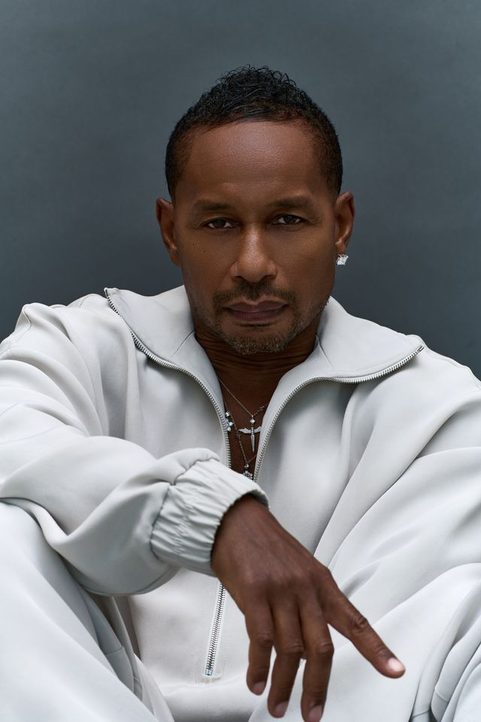Karl Kani (US)
In 1991, Karl Kani appeared at the annual MAGIC fashion trade show in Las Vegas to showcase a new line of urban streetwear that had never been seen before by national retailers. His pioneering vision to deliver baggy denim, oversized shirts, and thick sweatshirts from the street soon took hold as the hip-hop style of the nineties shifted from the urban street to main street. Publications from The Los Angeles Times to Vibe to Forbes have hailed him as the “Godfather of Urban Streetwear.”
Born Carl Williams in Brooklyn’s Starrett City projects, the son of Costa Rican immigrants, he found inspiration watching his father and a Haitian tailor design matching linen suits. A friend once challenged him, “Your name ain’t on it,” sparking the question: “Can I really become a fashion designer?” At eighteen he repeated the mantra, “Can I? Can I? Can I?” until it became his name—Karl Kani.
Ambitious as ever, he moved to Los Angeles and hustled relentlessly. He bribed factory workers to learn the garment business, advertised in Right On! Magazine, and cold-called retail chains like Merry-Go-Round. A chance meeting with Ed Lover and Dr. Dre of Yo! MTV Raps turned his brand into a celebrity favorite, worn and promoted by Jay-Z, Nas, Notorious B.I.G., Snoop, and countless others. No one championed the brand more than Tupac Shakur, who famously posed for an ad campaign on a Brooklyn basketball hoop, an image that helped propel Karl Kani to national fame.
The biggest hustle came when he partnered with Cross Colours in 1991. Within the first year, revenues surpassed $89 million, with Karl Kani’s line contributing 40%. When Cross Colours folded in 1993, he pivoted again, launching an urban footwear line promoted by NBA legends, while refusing to give up control of his brand to Wall Street.
Through decades of changing tastes and shifting trends, Karl Kani continued to hustle, building a brand that has generated nearly half a billion dollars in sales. Today, it stands strong in twenty-five countries with flagship stores in Europe and Asia, still rooted in the same energy, spirit, and ethos of the hood.
As Karl has stated: “No one would dare say they started streetwear before Karl Kani. We were, and are, the originators of that intersection of hip-hop music and urban streetwear. That impact is much bigger than our company and the popularity wave we rode in the nineties. Not many independent brands have maintained for thirty years, but we have. And we aren’t stopping anytime soon.”
